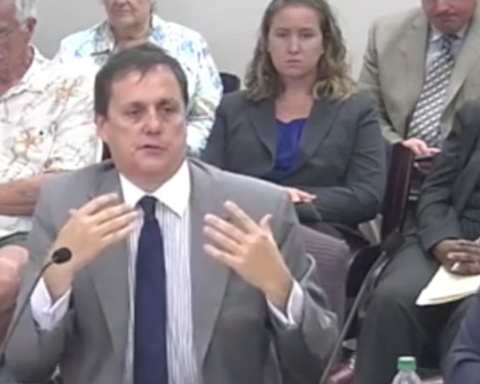State economists on Tuesday deadlocked over changing the state pension fund’s expected rate of return on investments.
The Florida Retirement System Actuarial Assumption Conference will meet again Thursday to see if members can compromise.
Christian Weiss, economic policy coordinator for Gov. Rick Scott, argued for keeping the system’s assumed rate of return at 7.65 percent.
But Don Langston, staff director of the House of Representatives’ Finance & Tax Committee, and Amy Baker, head of the state Office of Economic and Demographic Research, argued for lowering it to 7.5 percent.
During the meeting, Baker mentioned a “long-term dimming of expectations” from the investment markets.
Pensions & Investments money management newspaper recently explained that “lowering return assumptions can have big implications.”
For instance, “it increases the unfunded liabilities of pension plans,” meaning legislatures “must make larger pension contributions.”
The pension plan of the Florida Retirement System, the nation’s fourth-biggest public retirement system, has been approximately 85-87 percent funded in recent years.
But as conference members were told Tuesday, retirees are living longer and investments aren’t as profitable as they used to be.
The state’s pension fund ended the 2015-16 fiscal year at $141.3 billion in assets, down from $148 billion the year before. It earned $600 million but paid out $17.5 billion in benefits, the conference was told.
Where the system once had three active workers per one retiree, that ratio now is close to 1-to-1.
Earlier this year, a government-efficiency task force recommended closing the pension system to new hires and forcing them to enroll in an investment plan.
For several years, House Republicans have pushed some version of pension reform that fizzles out in the Senate. The House wants to move new state workers into 401(k)-style retirement accounts, as most private companies offer.









